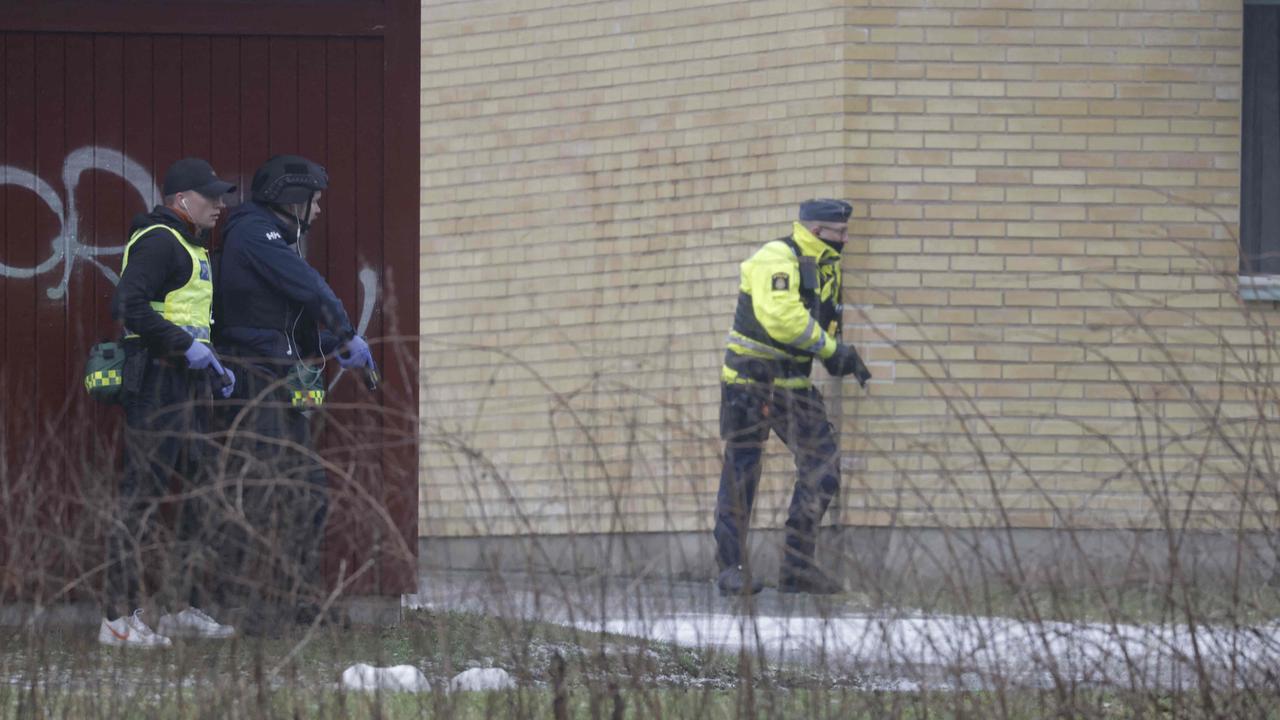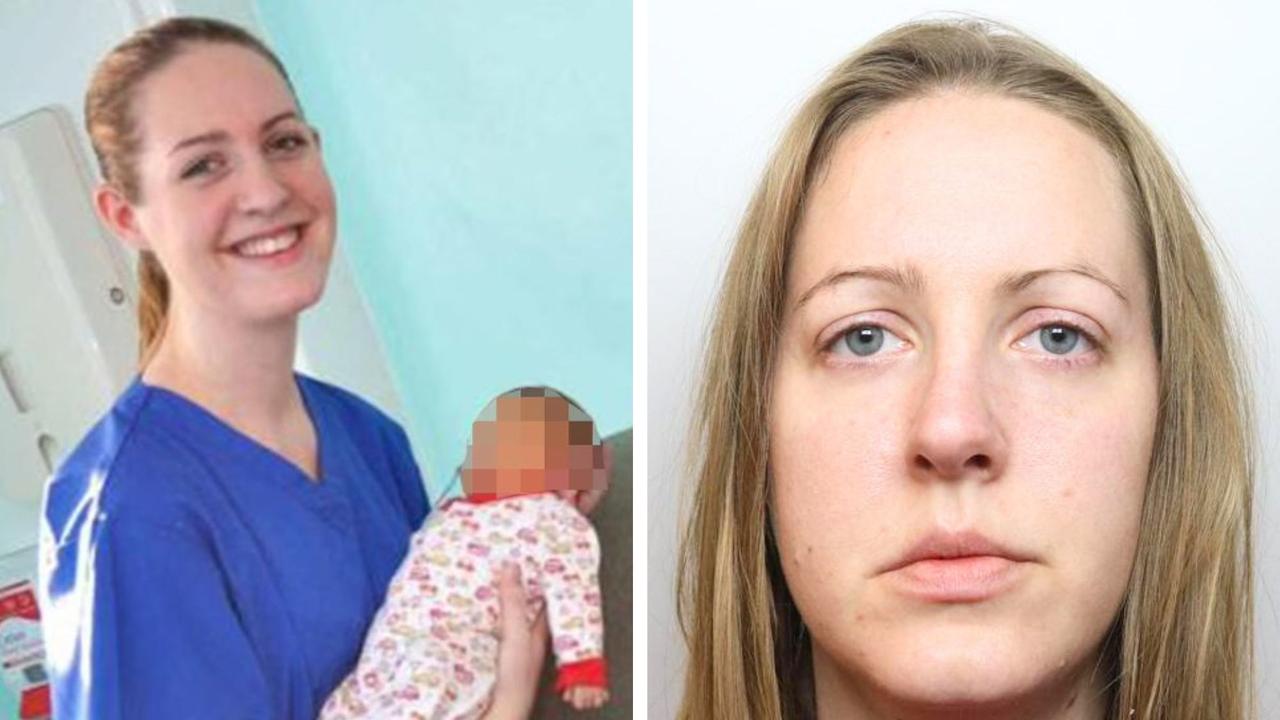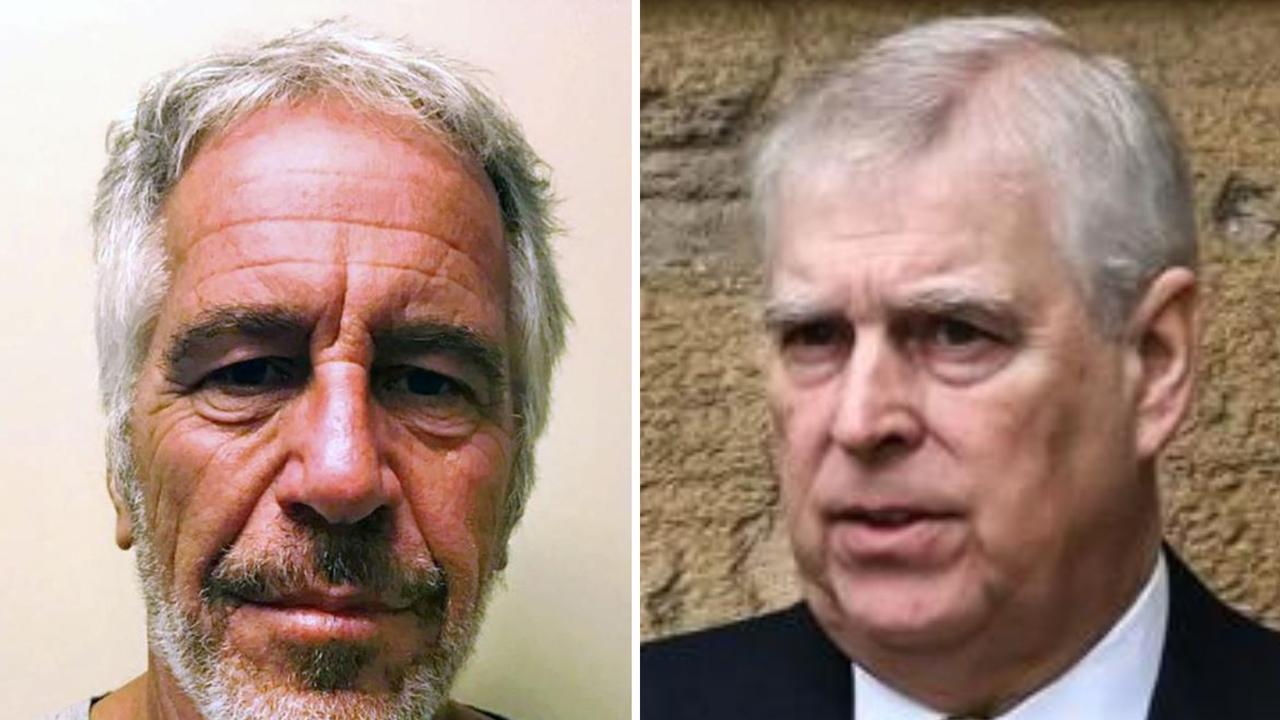From Byron Bay to Lviv: The generous Aussies doing their bit to save lives of Ukrainians
A long way from the famous surf break in idyllic Bryon Bay, two brave Australians last week embarked on a 3000km journey.
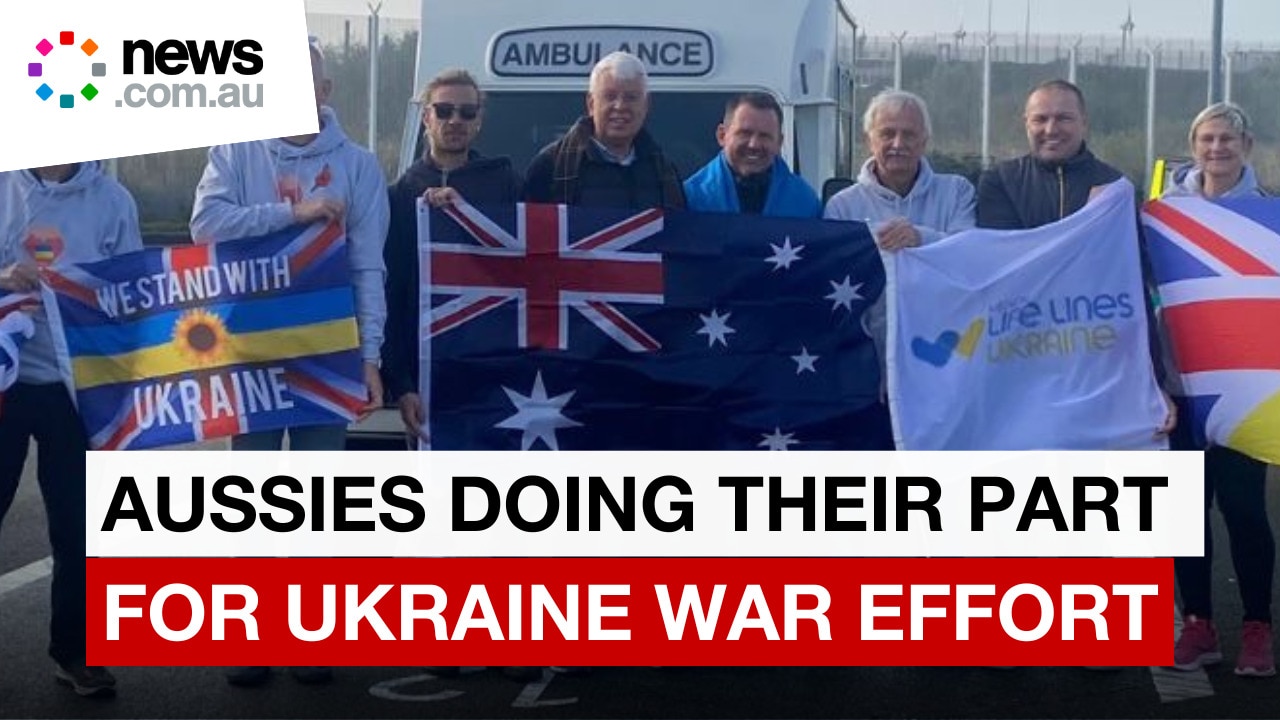
A long way from the famous surf break at The Pass in idyllic Bryon Bay, two brave Australians last week embarked on a 3000 kilometre journey across Europe, delivering lifesaving aid to the front lines in Ukraine.
Benjamin Webster, 26, a landscaper and surfer from the northern NSW town alongside his Sydney businessman father Neil Webster, donated and then delivered an ambulance fully stocked with medical supplies worth more than $60,000 to Lviv in western Ukraine as part of a humanitarian convoy.
The ongoing effort to supply Ukrainian hospitals with emergency response vehicles, led by non-profit organisation Medical Lifelines Ukraine (MLLU), has seen a total of 86 ambulances donated to the Ukrainian Department of Health since the outbreak of the war in 2022.
“A mate of ours tipped us off to Medical LifeLines Ukraine, and we did some digging and thought, why not, let’s do it,” Neil Webster said.
“Basically, we purchased an ambulance, and then we purchased medical supplies to put in the back of it, and then we joined a humanitarian convoy of five other vehicles and drove them into Ukraine”.
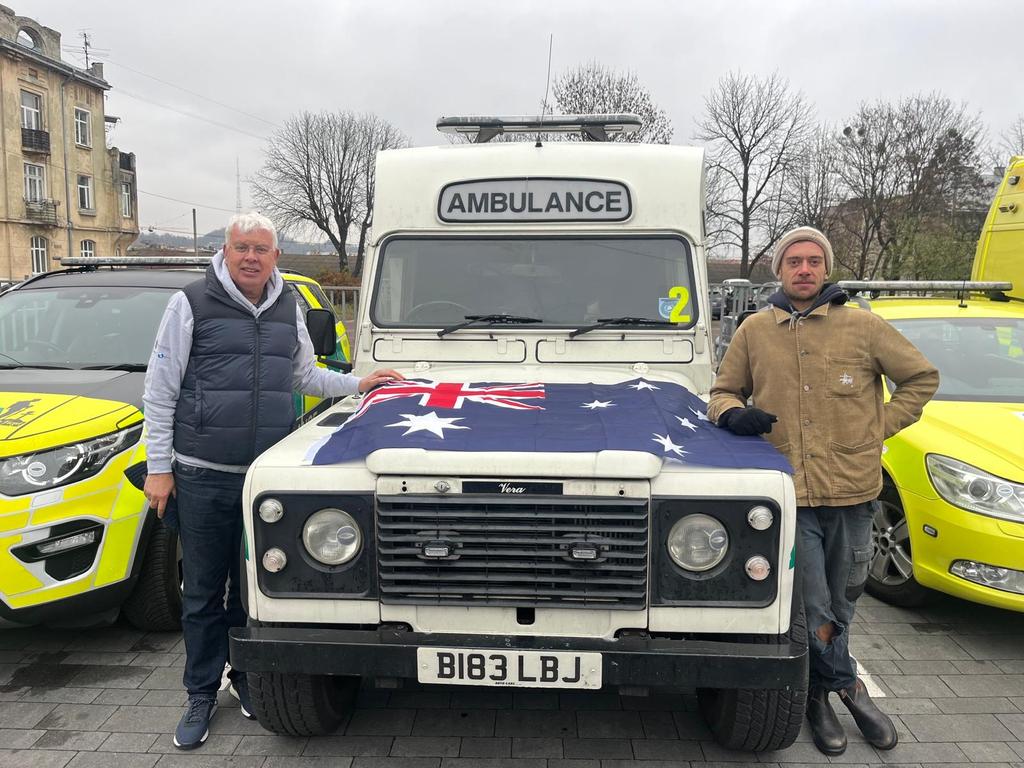
The Webster’s ambulance has since made its way into Eastern Ukraine where it will be operating out of a hospital in the Kharkiv region. The region is home to Ukraine’s second largest city, Kharkiv, which was liberated from Russian control after the incursion in late 2022 and has since been the subject of relentless shelling.
The regions of Eastern Ukraine have borne the brunt of Russia’s attacks and suffer from constant shortages of medical supplies and transport.
“The ambulances have a very short life, because Russia targets them,” Neil said.
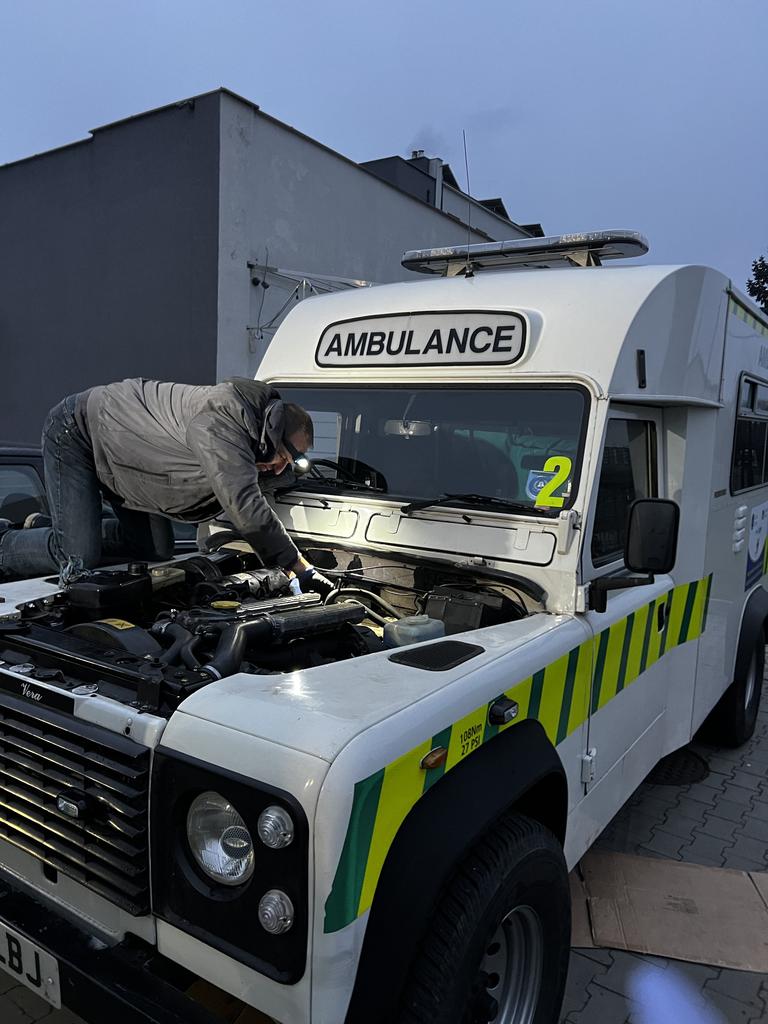
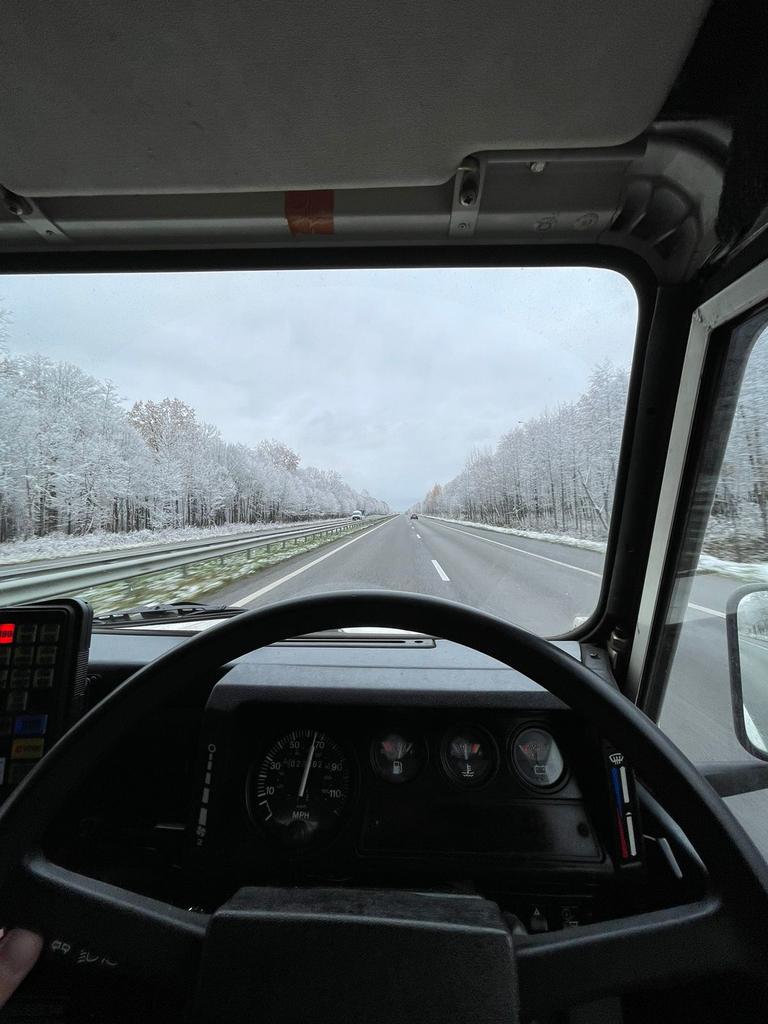
“So the ambulance we’ve given may only last three months or six months, it may only last a month, who knows,” Neil said.
“But they’re talking about these ambulances saving 20 or 30 lives a month. So our ambulance could potentially save 100-150 peoples lives.”
The average lifespan of an ambulance in Ukraine is estimated to be four months.
Based out of the UK, MLLU in collaboration with the Ukraine Crisis Appeal purchase decommissioned Naional Health Service (NHS) emergency vehicles at auction and then restore and stock them with supplies.
“Because of all the emission controls out of the UK, a lot of these diesel ambulances are out of favour for environmental reasons, so they’re replacing all of them,” Benjamin Webster said.
The NHS has committed to a net zero transport and travel strategy, with all new ambulances from 2030 to be zero emissions vehicles.
“So day one you start at 4am in London, you board the train which takes you across the English Channel, then you drive across France, then before you know it you’re in Belgium, then you cross the Netherlands and then you’re in Germany. So on the first day you basically cross five countries then crash,” Neil said.
“It’s really not the grand tour of Europe, it’s 12-hour days of driving. It’s a real humanitarian effort, not a leisure activity.”
But the pair maintain that it’s an accessible and tangible way for Aussies to assist Ukrainians in their battle for survival.
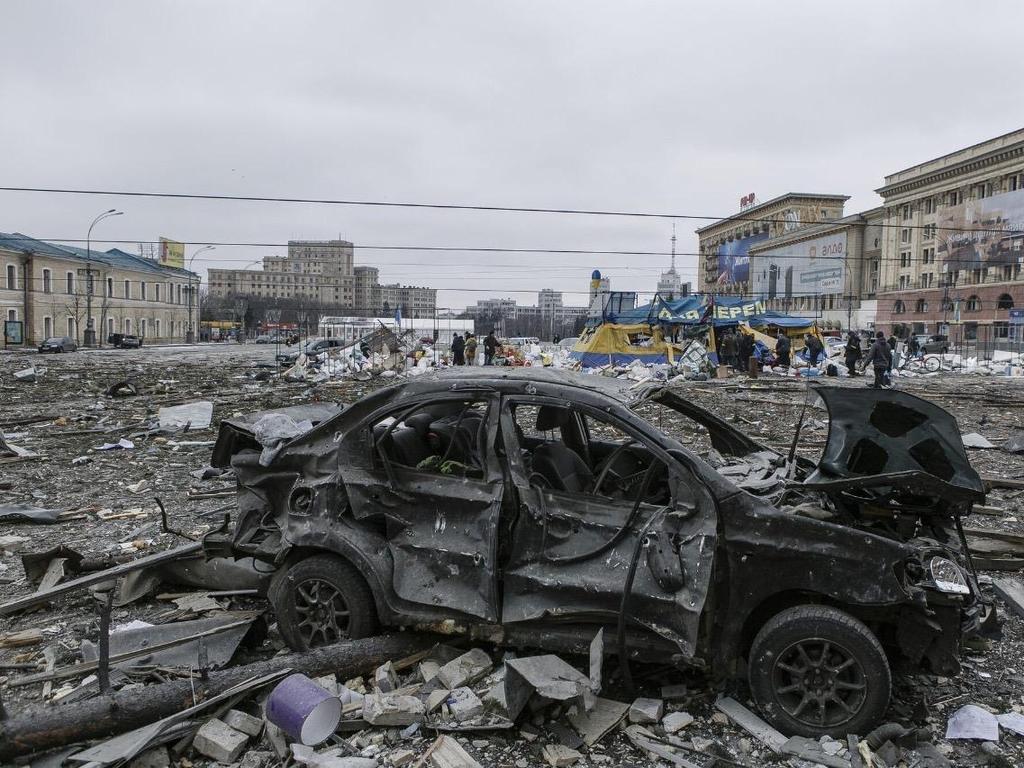
“As an Australian there is so little you can do, because I mean you can write cheques but what does a cheque really do?” Benjamin said.
With the United States Congress appropriating well over $150 billion Australian dollars to assist Ukraine according to the US Government Accountability Office, Neil said this is “a very tangible way to do something that makes a difference to somebody’s life.”
After arriving in Ukraine, the convoy, comprised of donors from around the world, spent one night in Lviv and shared a dinner with Ukrainian local MPs, heads of hospitals across the country and one 60 year-old veteran who had recently returned from the front lines.
“Some of them [hospitals] had started the war with seven ambulances and now they’ve got one and they’re in desperate need, it’s really quite gut wrenching and emotional,” Benjamin said.
“But their sense of strength and optimism is second to none and you really do feel like you have no right to complain about another thing ever.”
As the war drags on well into its third year, life in western Ukraine has continued on with many civilians refusing to let the Russian offensive consume their lives.
“When you enter Ukraine from the Western side, the Polish border, you wouldn’t even know [the war] was happening,” Benjamin said.
“All the businesses are open, the little old lady still walking down the street with her shopping bag, dogs still out for a daily walk, most people aren’t listening to the air raid alerts because they refuse to let their life be affected by the Russians.”
Since their return to Australia this week, the nature of the conflict has shifted significantly with the US authorising the use of long-range missiles to hit targets inside Russian territory. However, the future of US support for Ukraine is unclear with President-elect Donald Trump set to take over the White House in just under two months.
Mr Trump has vowed to limit further support for Ukraine. Russian President Vladimir Putin has also stepped up his rhetoric in recent months putting nuclear retaliation to Ukrainian long range missile strikes on the table.
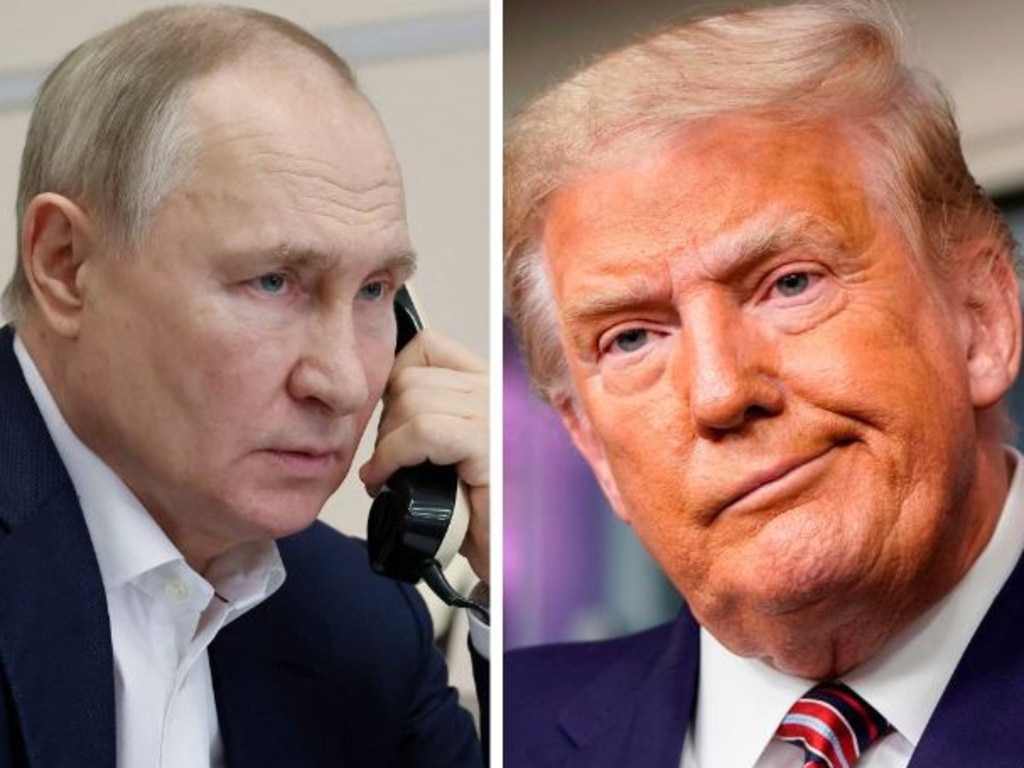
“The Europeans are far more concerned about the conflict than here, in Australia we have a bit of war fatigue with Ukraine, Gaza, Lebanon and it’s far away,” Neil said.
“But for the Europeans, Ukraine is a big deal for them. The Polish are really concerned because they border Ukraine, the Swedish are really concerned, all of Europe is concerned.”
The ambulance convoys to Ukraine are organised by Medical Life Lines Ukraine (MLLU) and are a collaboration of the Ukraine Crisis Appeal and the Australian Federation of Ukrainian Organisations (AFUO).
They can be found at https://www.ukrainecrisisappeal.org



